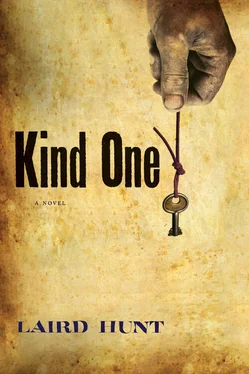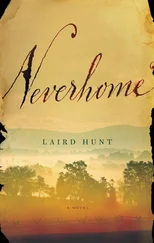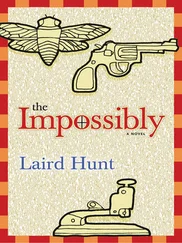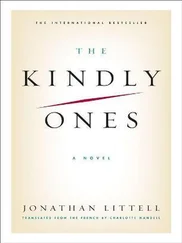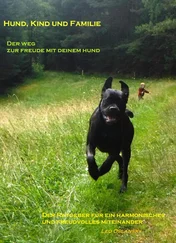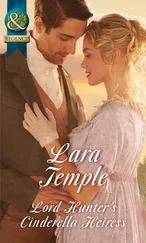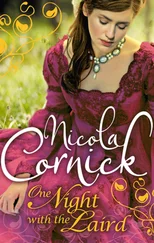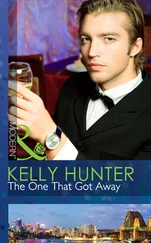I will do this, I thought. They have thrown my death down into the well and I will follow it. I followed it. The gibbous moon draped itself down over my world, lit my way. There was no splash when I hit water.
It was good into the forenoon of that last morning when I saw what I had not seen all that day and night for following my death: a piece of purple thread strung taut from the beam behind me and out through the motes aswirl in the shed light to the lip of the well and over into that hole. I knew I was dreaming it, but my hand went out and took it and pulled and, dreaming, hauled it hand over hand until the key had come out of its wet and its dark. I dreamed it came down on the yard dirt with a thump of dust and that I pulled it through the shed dirt and into my hand. My dream played dreaming tricks with me and at first wouldn’t let the key into the lock of my shackle. My eyes looked at my hands and my hands at the lock and the key would not enter and after it had entered would not turn. Then it did. I dreamed my way up out of my filth and my shed and walked bloody-ankled to the edge of the well and saw the dream of my face down below amid the dark water. Zinnia or Cleome or both had drunk of that water before they departed and they had left the bucket half-filled on the far side where I had not seen it from the shed. I woke from my dream with that bucket at my lips. I woke and ran.
I SLEPT EASYin that cold frame I came to rest in behind Lucious Wilson’s outhouse easier than I slept in any bed before or after, in company or alone. The dirt to it was soft, and as I lay there the nights I did I sunk enough to put me back into my hole in that shed in Kentucky. I dug out that hole with my fingers. They had gotten me used to putting myself down into the dirt during the daytime, and when they put me away at night I got to favoring the idea of a shallow hole to make my bed in. All those weeks and months previous, in Evansville and Indianapolis, I had been thinking about that hole. About where I had been dead and waiting for the pig sticker to put the final word to it. I found it again in that cold frame behind the outhouse.
Before she passed I told the old woman who found me and took me to Lucious Wilson about that. About that and about my husband’s piece of paradise and about my breakfasts with him. I told her about the pigs running wild and my hugging the oak tree and the shackle and watching Alcofibras at his turn. That old woman liked to sip fresh mint tea to settle her before sleeping, and as I talked she sat there and sipped it. Every now and again she would pick a mint leaf off her tongue. I told her about taking the strop to Zinnia and about taking the strop to Cleome. I told her I had not raised my voice against my husband when he was at Alcofibras. I told her I had tempted Linus Lancaster into taking me down to Kentucky to live in his fine house with him. That I had sat in his big lap and tickled his ear with a piece of timothy.
“Well, well, Sue,” she said. “The Lord has his ways and meanings for us all.”
“The water moved away from me. It wouldn’t have me,” I said.
“I know it. I know it.”
She had crop-colored eyes and a nice way of speaking. She died two days later when a horse kicked her in the head.
If it hadn’t, I could have told her that I had not stopped taking the strop to Cleome even after I saw her sick in the mornings nor when Zinnia told me why and begged me to give her Cleome’s and her own lickings both. Or that it was ten days and nights of stroppings and visits down the hall from the time I found that second photographic portrait in my husband’s drawer in the chifforobe, on the back of which had been written, in my husband’s own hand, “dearly departed and my two daughters,” to the night I pulled the pig sticker out of the moon-slathered sow Linus Lancaster had lately slaughtered and hung up by the barn and came up behind him as he sat to a late whiskey, singing with that voice of his, and gristled every speck of it into his neck.
I cannot account for that delay. There was a fury in me. It is there still.
A time as I was coming up north through the twilight, heading for the river with its ferryman, a rider with black teeth leaned down off his horse and asked me what I was running from.
“You’re looking at it,” I said.
I also cannot give a reason why I did not finish the second part of the chore I’d set myself that evening and apply that pig sticker to myself. Or why, having left it sit there in Linus Lancaster, I didn’t pack up my bag and run. I knew it wasn’t kisses I had coming.
You’d have thought I enjoyed that jaunt there in the shed. Was gobbling up my just desserts. Taking what was mine and earned. Giving it a hiss and a grin. Letting my fury out into the young days of Kentucky to turn a step and a bow with theirs.
Once in my deepest early days a boy got lost and fell into a pond, and when they found him he was just a blue coat and red pants floating facedown under ten inches of ice. My father went out with his axe to help get him out. All the men had axes and they made a kind of clock on the ice and took turns letting their axes fall. The axes fell one after the other around the clock, and pieces of ice flew up into the air and off to the sides and caught the sunlight coming down into the crater they were making. I was five. The boy had been my playmate. It looked like they were pulling him out of the eye of a jewel. When they had him out and were wrapping him on the bank, I walked over to the jewel crackling around the black water and just dropped myself in. It was my father who pulled me out. When he had me home and dry and hugged, he whipped me until I saw the same stars I’d seen around that jewel in the pond, and then he whipped me some more because when he asked me if I’d had enough licking, I started to smile.
Comes a day when everything you thought you had put behind you sets up its tent in the middle of what you were still hoping you could call tomorrow and yells out, “Right this way.”
Well, here I come.
CANDLE STORY (WHERE THEY WENT). 1911 / 1861
But they’ll nor pinch ,
Fright me with urchin-shows, pitch me i’ the mire ,
Nor lead me, like a firebrand, in the dark
I WAS EIGHTEEN YEARS OLDin 1861. What I walked away from one late spring morning in Kentucky I vowed never to walk toward again. The long years went by and I kept my vow. Then this notion came upon me. It put a hand on my shoulder as I sat to my Sunday prayer. It put a hand on my shoulder and squeezed.
I carried it here. All the days and nights it took to make the journey. When I was eighteen and my sister was sixteen and we walked away together. Held hands and walked, the two of us, away across the stone bridge. There was a Klaxon as that hand squeezed my shoulder.
It must have been just outside the church. I started and sat up straight, caught Eunice Fairbanks’s eye and we both gave a laugh. That laugh covered up the feeling of that other thing well enough that it wasn’t until I was on my way out of the church that I thought of it again. The Reverend Washington was standing out on the street shaking hands, sending off his blessings. I told Prosper, my nephew, to wait and asked the Reverend if I could have a moment. We stood away from the traffic, leaned in close to each other against the noise. I told him it was the old days come to visit. He asked me if they wanted anything in particular. I told him that they did, that I had felt a call.
“Stay here with us, Granny,” he said. “You fought all the fight of this world. Stay right here. Let others fight now. Take your rest.”
The Reverend Washington is a fine young man. He tends to the poor and holds the hands of the sick. Once I saw him lift a car off a little white boy who had been thrown under it. They give trouble to some of the colored churches but not to ours. Prosper has been right to seek his counsel a number of times. I thanked him. He was born long after the old days. I asked him if he would pray a moment with me.
Читать дальше
